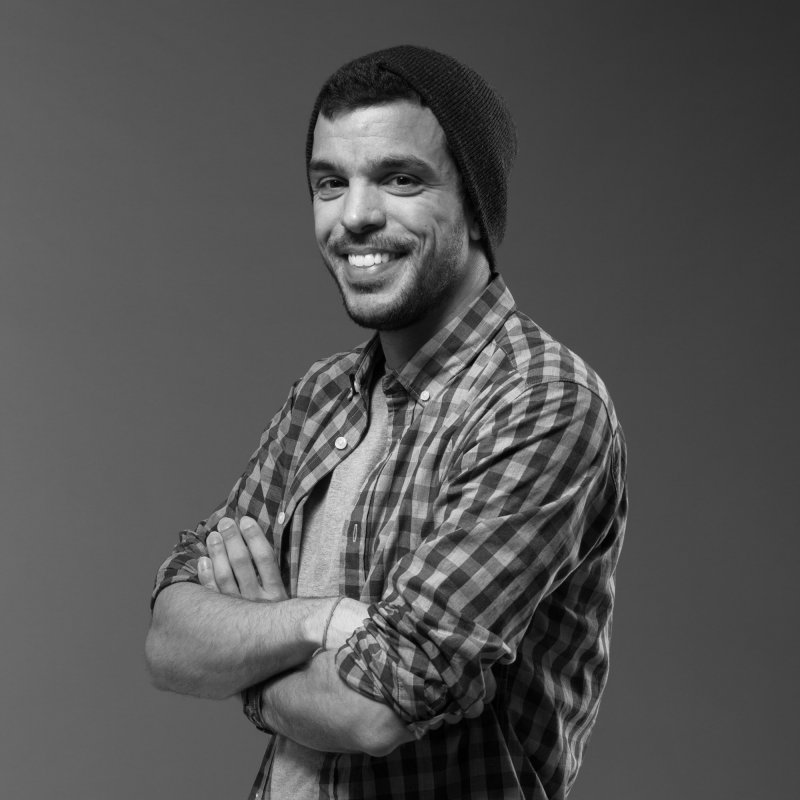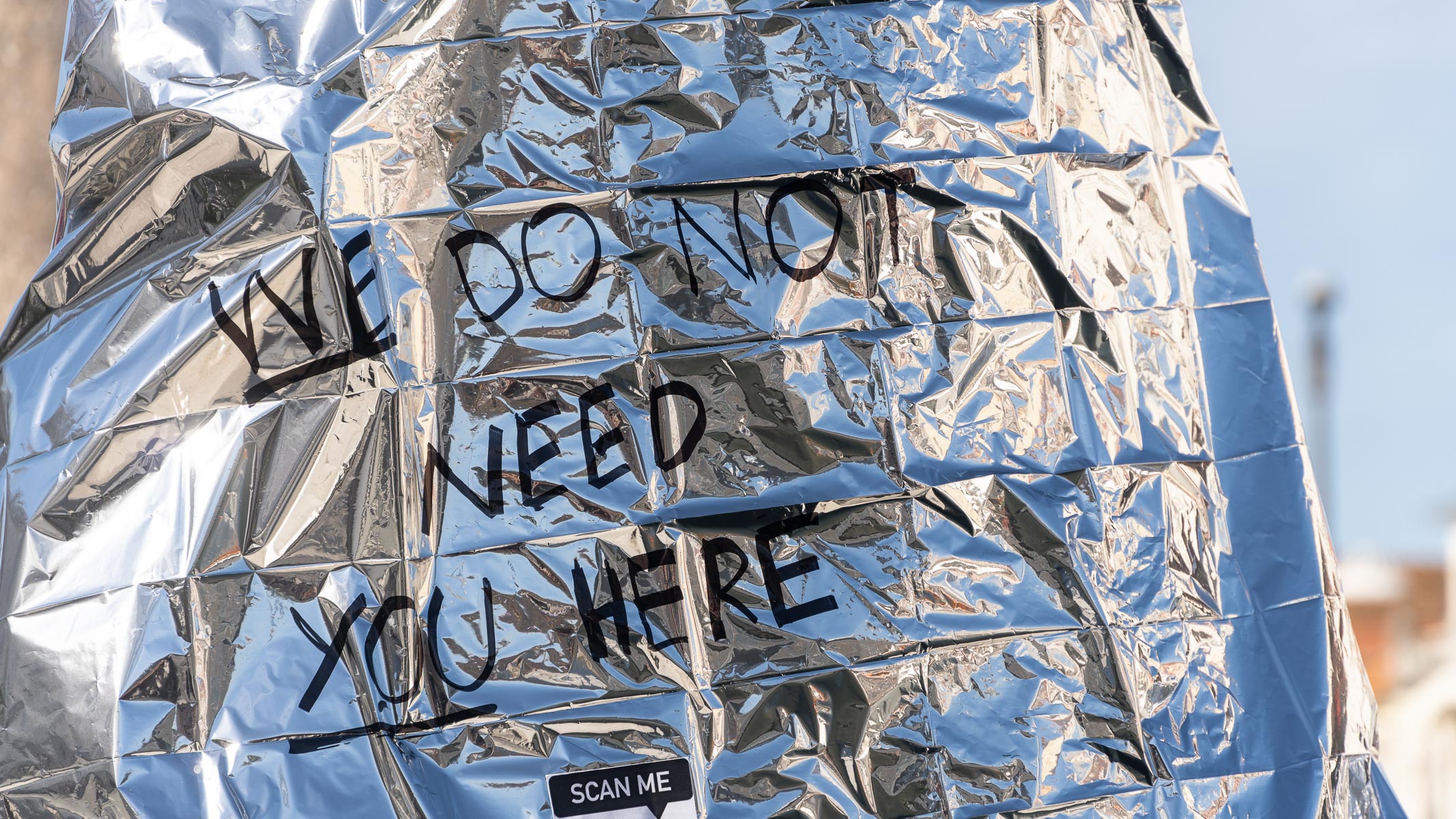“Home Away From Home”: A Journey Through Stories of Migration
In a course that brought together young people from across Europe in Aveiro, stories of migration were shared, non-formal education methods were explored, and new ways to challenge prejudice were discovered.
Estimated reading time: 5 minutes and 6 seconds
© Nikola Veljkovic
“Home Away From Home” was a Training Course organized by Agora Aveiro between March 21 and 31. The project brought together young people from across Europe - Italy, Croatia, Turkey, Greece, Spain, and Serbia - in the "city of canals" to, as Jasna, one of the project facilitators, explain, “equip young people with tools and methodologies to work on the topic of migrants and refugees in their regions.”
For ten days, participants engaged in a series of non-formal education activities such as the “Human Library,” “Theatre of the Oppressed,” and “Guerrilla Marketing” to explore migration in an empathetic, creative, and disruptive way. We sat down with some of the participants and organizers to learn more about the project: its goals, the activities carried out, and what was ultimately achieved.
LISTENING TO UNDERSTAND
Dimitra Apostolou, from Greece, came to Aveiro through Level Up, a partner organization. Descended from refugees on her mother’s side, migration is not just an area of study for her, it’s a calling: “I want to become an intercultural mediator!” During the “Human Library” she shared her family’s story: “I spoke about my mother, my grandmother, my great-grandmother and her experience as a refugee.” She was surprised by the receptiveness of the Portuguese audience and shared her hope: “People are genuinely interested in learning. I wasn’t expecting them to be so open. I have hope in the younger generations!”
Efe Kalayci, from İzmir, Turkey, visited Portugal for the first time and offered insights from a country that plays a central role in migration, serving as both a destination and transit point for thousands. “Many countries, including Turkey, face major challenges in integrating migrants. Migrants live isolated from the community”, he explains. According to the United Nations High Commissioner for Refugees, Turkey is one of the countries hosting the largest number of refugees in the world.
His goal in participating was clear: to find ways to foster integration in his city. “I already knew about the Human Library, but I never thought of applying it in this context. It’s definitely something I will use in my city!” However, he recognizes the challenges of raising awareness among those not directly exposed to the topic: “How can we reach those people? The initiative has to come from them, it’s a process that takes place over many years.” He continues, “Younger generations are already more accustomed to the presence of migrants, it’s something that evolves gradually.”
Despite the difficulties, Efe praises the Portuguese model: “Portugal is one of the best examples of immigrant integration. People are not aggressive towards migrants, they are more welcoming.”
Portugal has invested in the social, educational, and professional integration of migrants through the High Commission for Migration, particularly via CLAIM – Local Support Centres for the Integration of Migrants. In Aveiro, the CLAIM is managed by Casa Vera Cruz, a regular partner of ours. They support migrants through Portuguese classes, legal assistance, housing support, and access to the national health service and schools.
TOOLS FOR TELLING STORIES
One of the course highlights was the “Human Library”, a methodology previously used by Agora Aveiro for projects on Active Ageing, in 2022, and LGBT Rights, in 2023. Instead of reading books, in this library we “read” people. The informal and intimate setting encourages dialogue and makes it easier to dismantle stereotypes and prejudices.
“We gathered five people with powerful and impactful stories to share their realities”, says Leo Majstorovic, from Serbia. “We had ‘books’ from Iran, the United States, Peru, and Greece”, adds Jasna.
To promote the Human Library, the participants organized a “Guerrilla Marketing” action in the streets of Aveiro. Using creativity and visual impact, they captured the community’s attention and encouraged them to participate.
The third and perhaps most powerful tool used was the “Theatre of the Oppressed”. This type of theatre invites the audience to become part of the performance, exploring, analyzing, and transforming reality. For this piece, as Jasna explains, “Participants were inspired by ‘Shadow Game’, a 2021 documentary following refugee teenagers trying to cross European borders in search of a better life.” Leo recalls: “It was such a moving story. We ended up crying…” Jasna highlights the seriousness and dedication with which the group approached the topic: “They were completely focused!”
WHAT LIES AHEAD
The participants were very satisfied with the event, not only with the topics and content explored but also with the organization, management of expectations, and the quality of the activities. “I thought I wouldn’t learn much, that it would be boring, with lectures and classes. But it’s completely different, it’s interactive, non-formal, and we’re active agents in the learning process”, says Leo.
Truthfully, this is not a light topic, it’s something serious, and if addressed properly, it can have a lasting impact on those involved. “There are still many things that the participants are processing”, says Jasna. “Overall, it was a very positive experience. It was a very engaged and participative group; many of them have personal experiences related to the topic, and it will be great to see how they apply what they’ve learned” she adds.

Helder Berenguer













